The Power of Financing
In the Democratic Republic of Congo, four entrepreneurs show why access to finance is vital
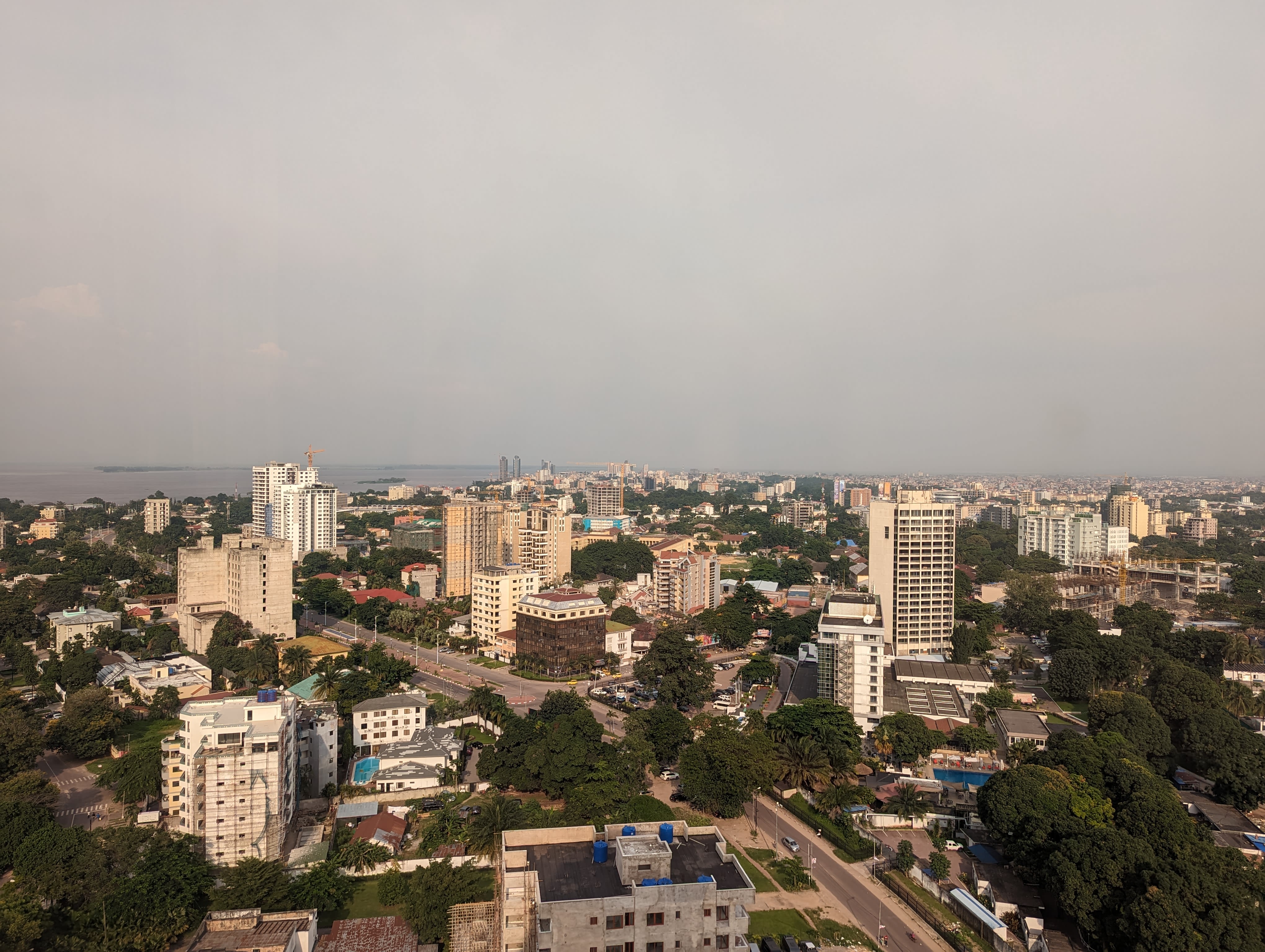
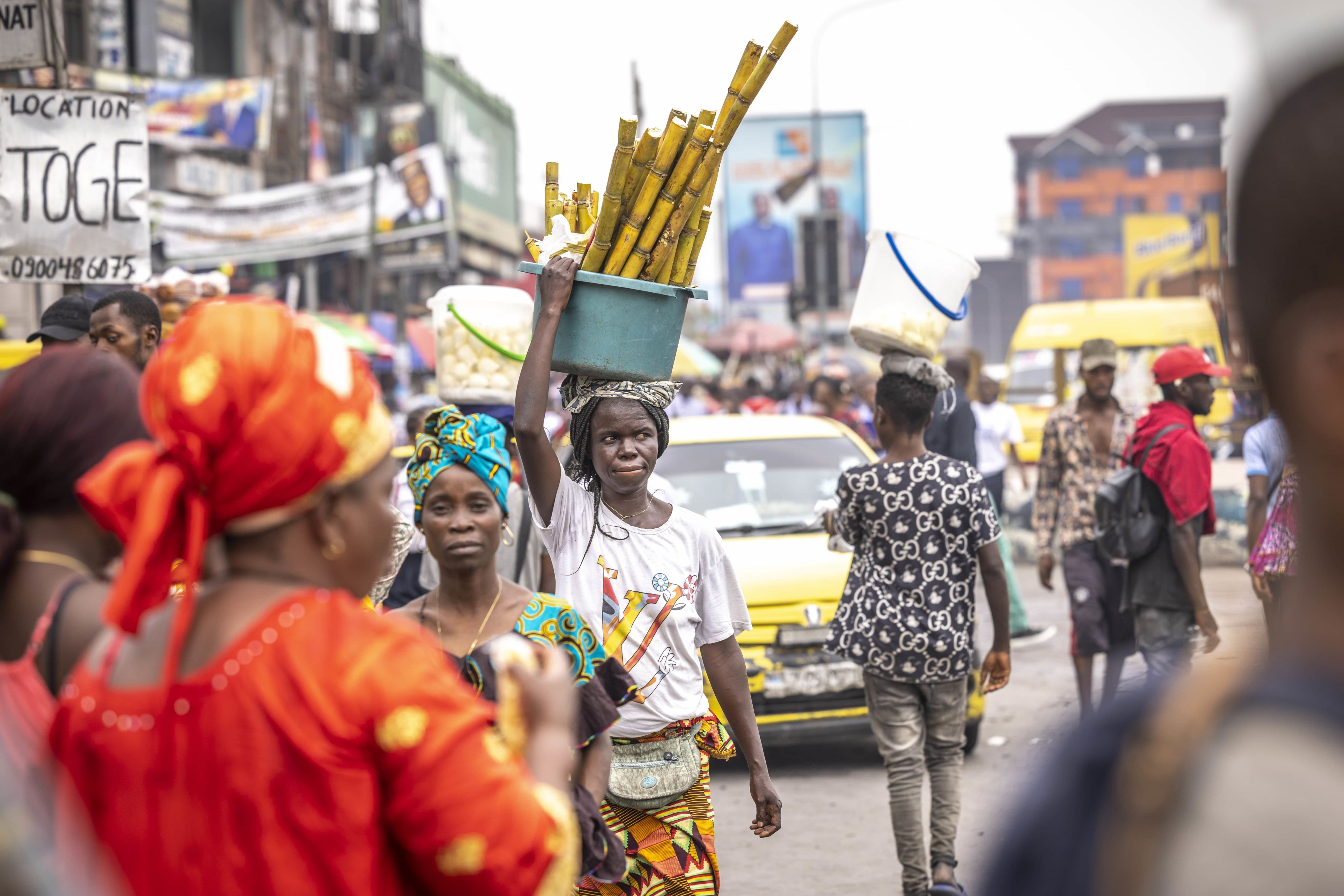
A street vendor in Kinshasa, Democratic Republic of Congo
A street vendor in Kinshasa, Democratic Republic of Congo
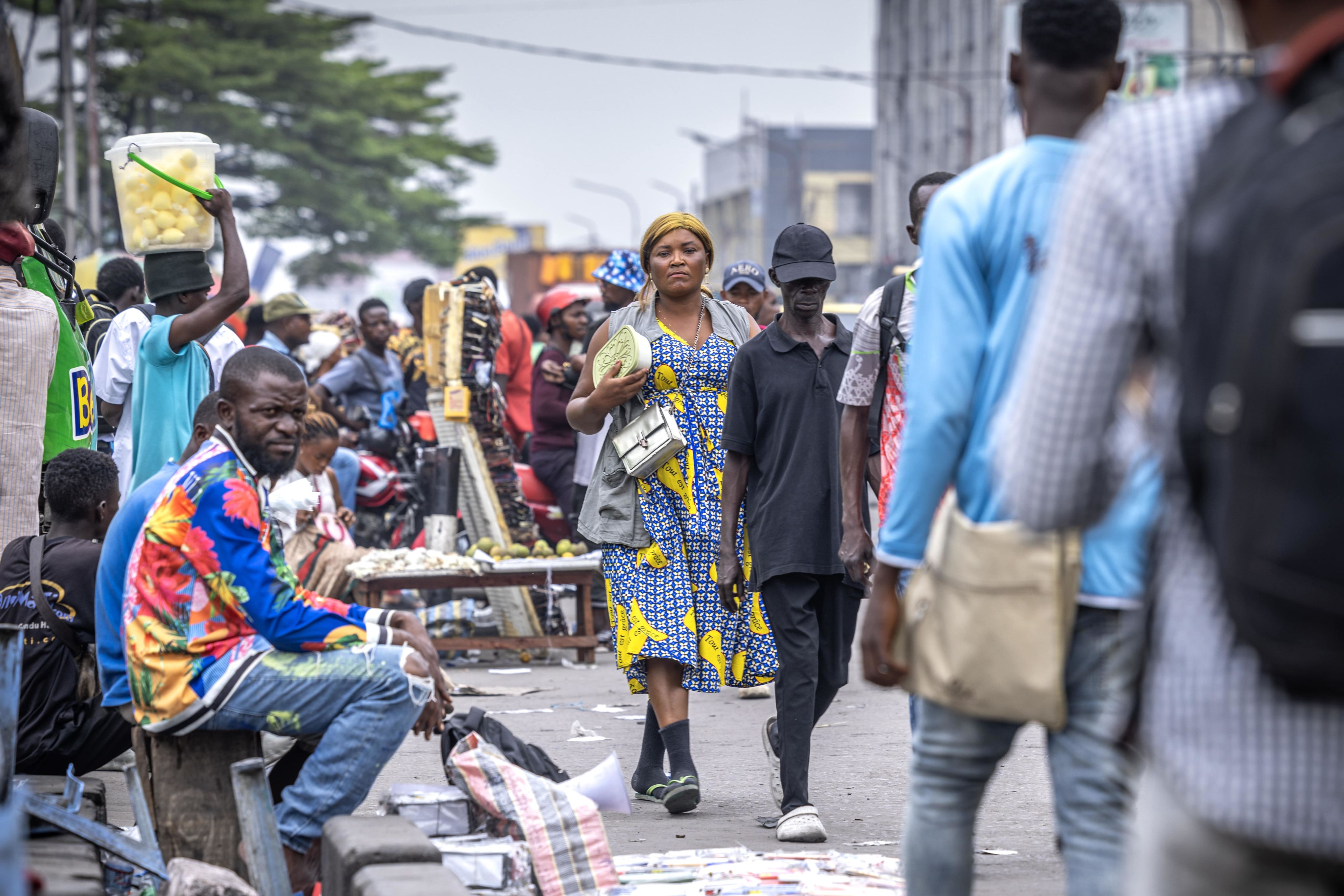
Streets of Kinshasa, Democratic Republic of Congo
Streets of Kinshasa, Democratic Republic of Congo
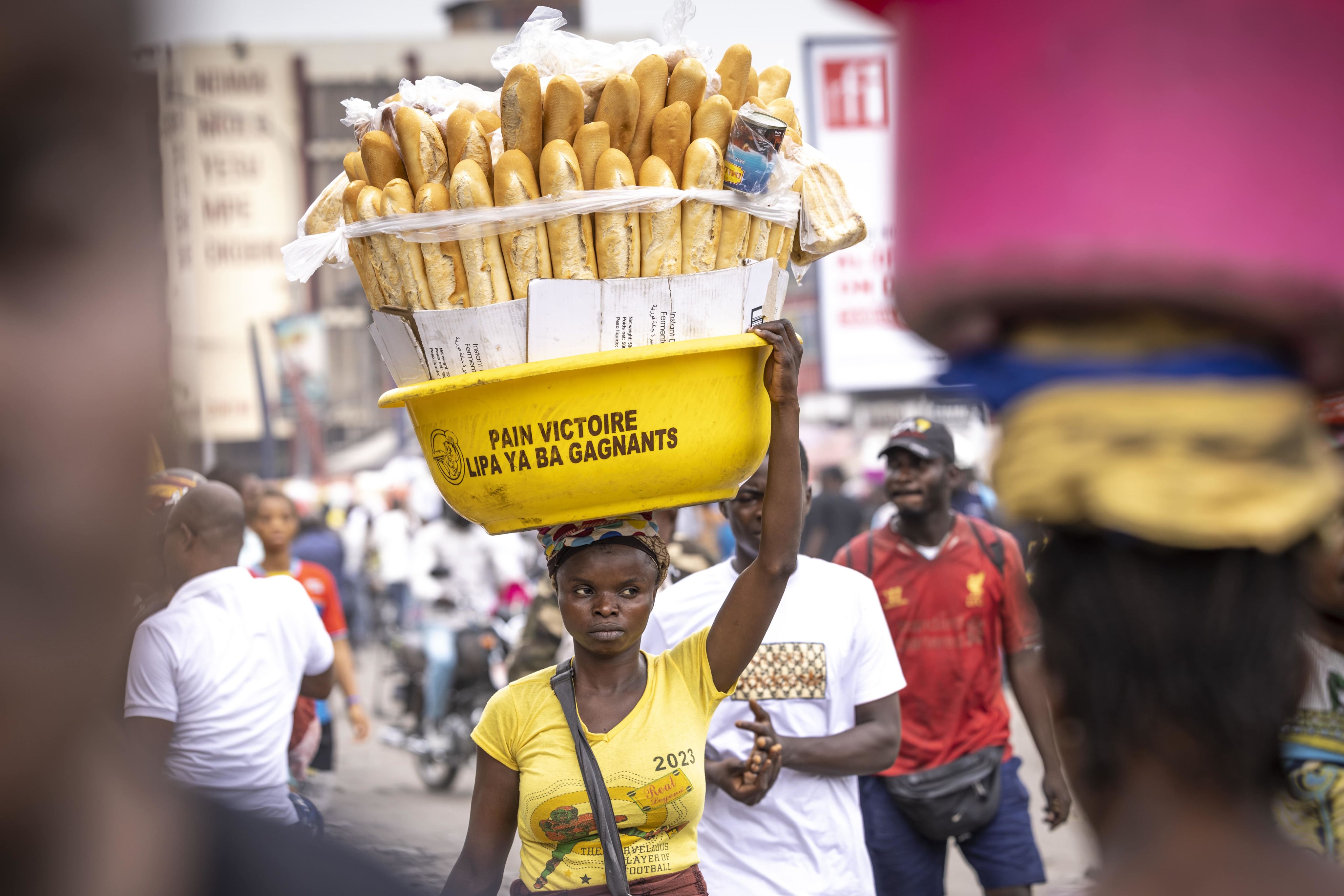
A street vendor in Kinshasa, Democratic Republic of Congo
A street vendor in Kinshasa, Democratic Republic of Congo
Small and medium-sized enterprises (SMEs) play a vital role in providing goods, services, jobs and innovation across the Democratic Republic of Congo (DRC), sub-Saharan Africa’s biggest country by land size and one of the continent’s most complex business environments.
These smaller businesses—like businesses anywhere—rely on the ready availability of financing to maintain and grow their operations. However, the DRC’s financial system remains largely underdeveloped, with credit primarily directed to larger companies that can provide better guarantees.
The result? An SME financing gap of $6.8 billion, equivalent to about 19 percent of the DRC’s GDP. Both sides of the equation—banks and SMEs—struggle with challenges that are contributing to this gap.
The DRC’s banks generally lack the business models, policies, products, and processes needed to serve and support smaller businesses. That leads to some parts of the financial industry viewing SMEs as too high risk—or ignoring them altogether.
SMEs, in turn, frequently lack the experience and capacity needed to apply and obtain financing. They cite high collateral requirements, short tenor of loans, high interest rates and complex application procedures as reasons for not qualifying for loans—or even seeking them in the first place.
These businesses might have useful products and excellent business strategies, but they still need financing to grow and succeed – and to enable them to bid for tenders and invest in crucial equipment, research, innovation, marketing, and human capital.
Helping banks expand SME lending
Improving access to finance is a top priority for IFC and its partners in the DRC—and why IFC is providing EquityBCDC and Rawbank, two of the country’s leading banks, with financial and advisory support to expand their SME lending programs.
Over the past two years, with the support of the International Development Association’s Private Sector Window, IFC has provided EquityBCDC with a loan equivalent to $50 million in Congolese francs and a $12.5 million risk-sharing facility to support local currency financing. IFC has also granted a loan of up to $35 million to Rawbank to increase longer tenor financing for smaller businesses.
These loans provide both banks with stable funding to diversify their portfolio and expand SME lending. EquityBCDC, for example, aims to make an additional 10,000 loans to SMEs in the DRC, and to increase its SME portfolio from $450 million in 2022 to $1.3 billion by 2025.
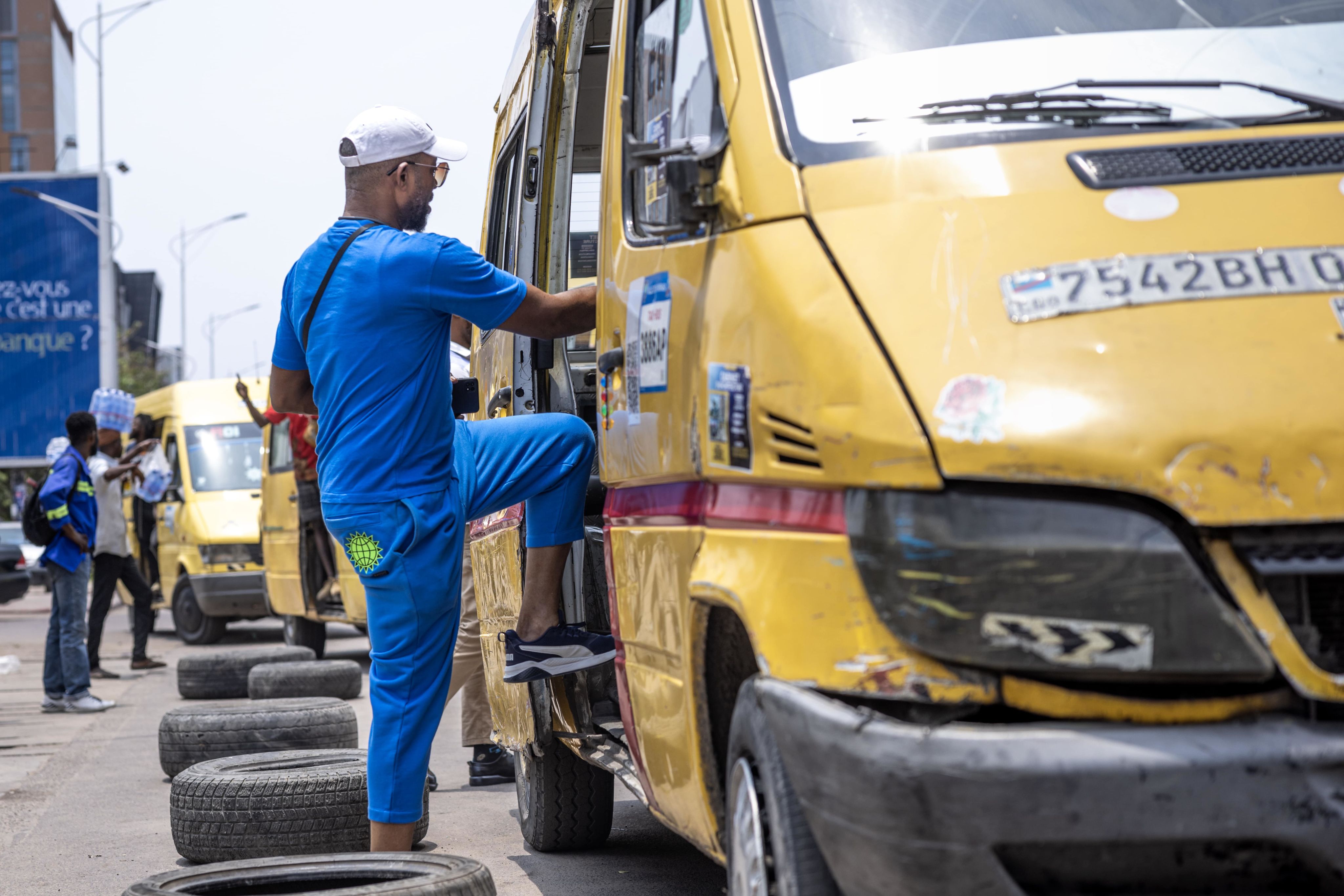
Client boarding transport vehicle in Kinshasa's Gombe municipality.
Client boarding transport vehicle in Kinshasa's Gombe municipality.
"The DRC is a vast, dynamic country that is on its way to becoming a dynamic economy with tremendous opportunities for small businesses," said Dr. James Mwangi, Managing Director and CEO of Equity Group Holdings Plc. “By working together with partners such as IFC, we are offering our clients a way to empower themselves while creating economic opportunities for wealth creation for our people.
In addition, IFC provides advisory support to help the lenders sustainably grow their SME support, by developing their capacity in addressing the needs of the SME segment, including smaller businesses, through fit-for-purpose financial services offerings, grounded on strong risk management practices.
To better grasp the challenges and opportunities Congolese SMEs face when they seek financing, IFC met with four entrepreneurs who are benefiting from these partnerships.
Operating in key sectors of the economy – construction, health, logistics and energy – they prove that with the right support—and strong determination—growth, success, and job creation are possible even in the most challenging business environments.
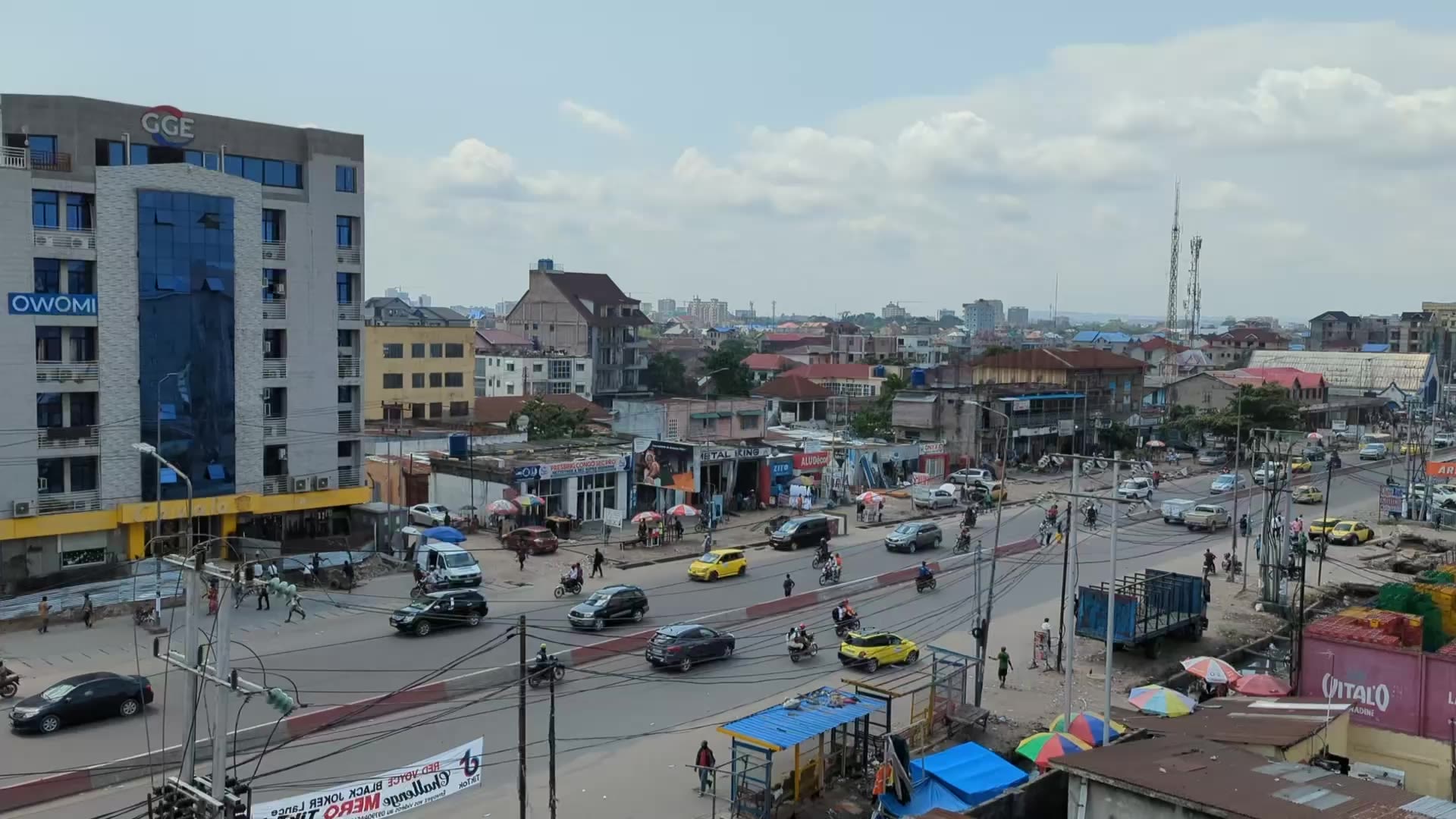
Strengthening Infrastructure
“When a bank commits to supporting a company, that’s a game changer.”
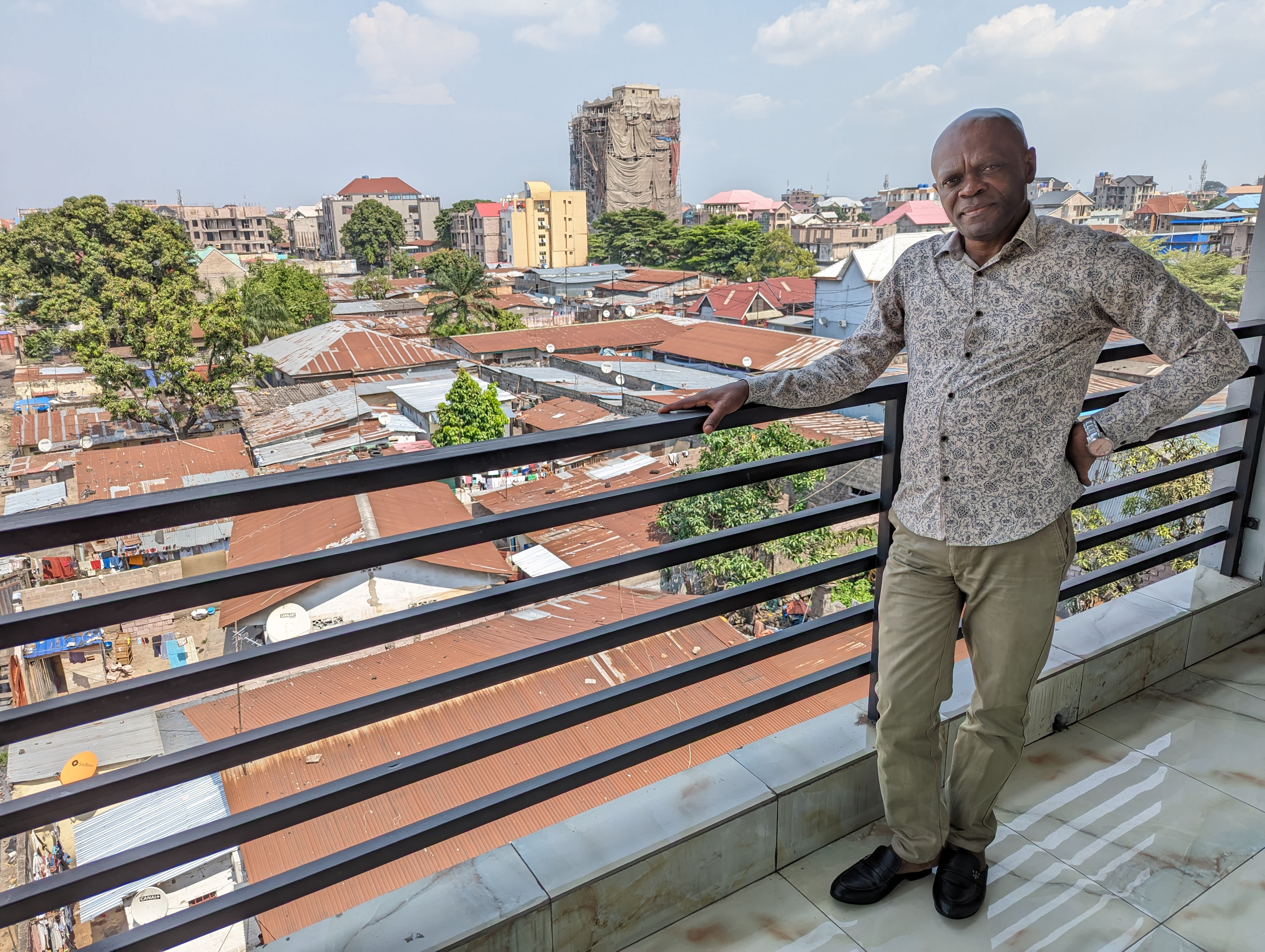
- Company: Procom
- Sector: Construction
- Founder: Charles Muanda Binda, 60
- Banking support: Rawbank
The smallest nails, bolts, and screws all contribute to the construction of even the tallest skyscraper. The same is true with financing: even relatively small amounts of capital can help a small business grow.
In 2017, Charles Muanda Binda, the founder of Procom construction company, approached Rawbank for collateral to bid on a tender. His company was small, with an annual revenue under $100,000. Even so, Muanda secured an initial $20,000 guarantee line from the bank.
Thanks to the guarantee, Procom won the tender—and later landed much larger deals, including most recently the construction of 13 bridges in the eastern province of South Kivu. Rawbank gradually increased its financial backing.
To date, Procom has secured $4.8 million in financing from Rawbank. The firm now has 20 permanent and 200 temporary employees and annual revenues of $20 million. It has operations across the DRC and clients that include national and provincial governments, and the United Nations.
"Starting a new construction project is always a headache because without guarantees and pre-financing, it is difficult, if not impossible, to compete with other firms,” says Muanda. “But when a lender commits to supporting a company, project developers gain confidence, and that's a game changer."
Rawbank’s support has been crucial, but gaining the bank’s trust required hard work, patience, and determination.
“We worked hard to get the bank’s backing and to show we were serious,” he says. “Our track record and expertise spoke for us. Rawbank understood that we were getting things done and that we needed support to seize more opportunities and grow.”
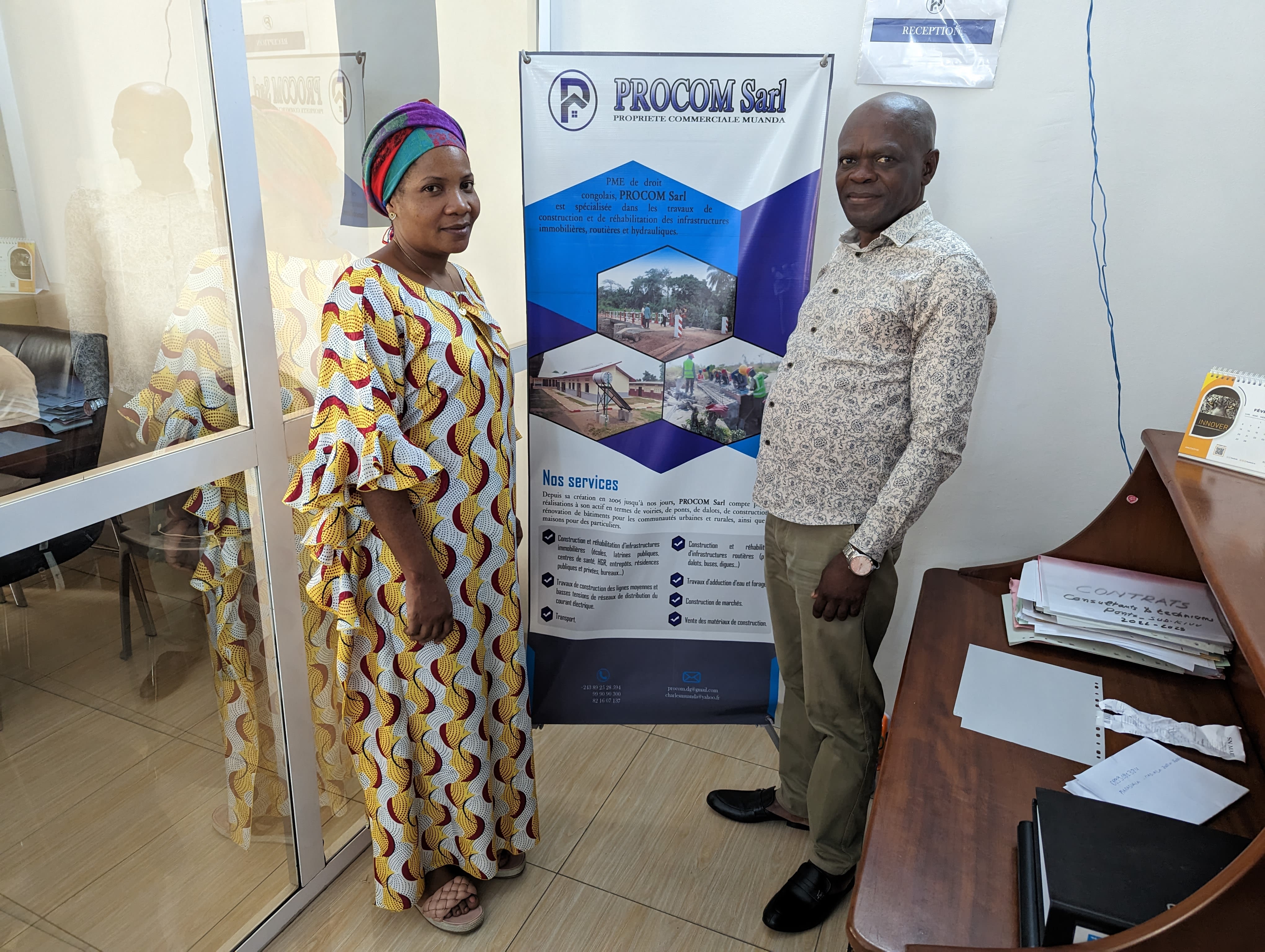
Bringing Solar Power to Households
“Financing is the key to starting the engine.”
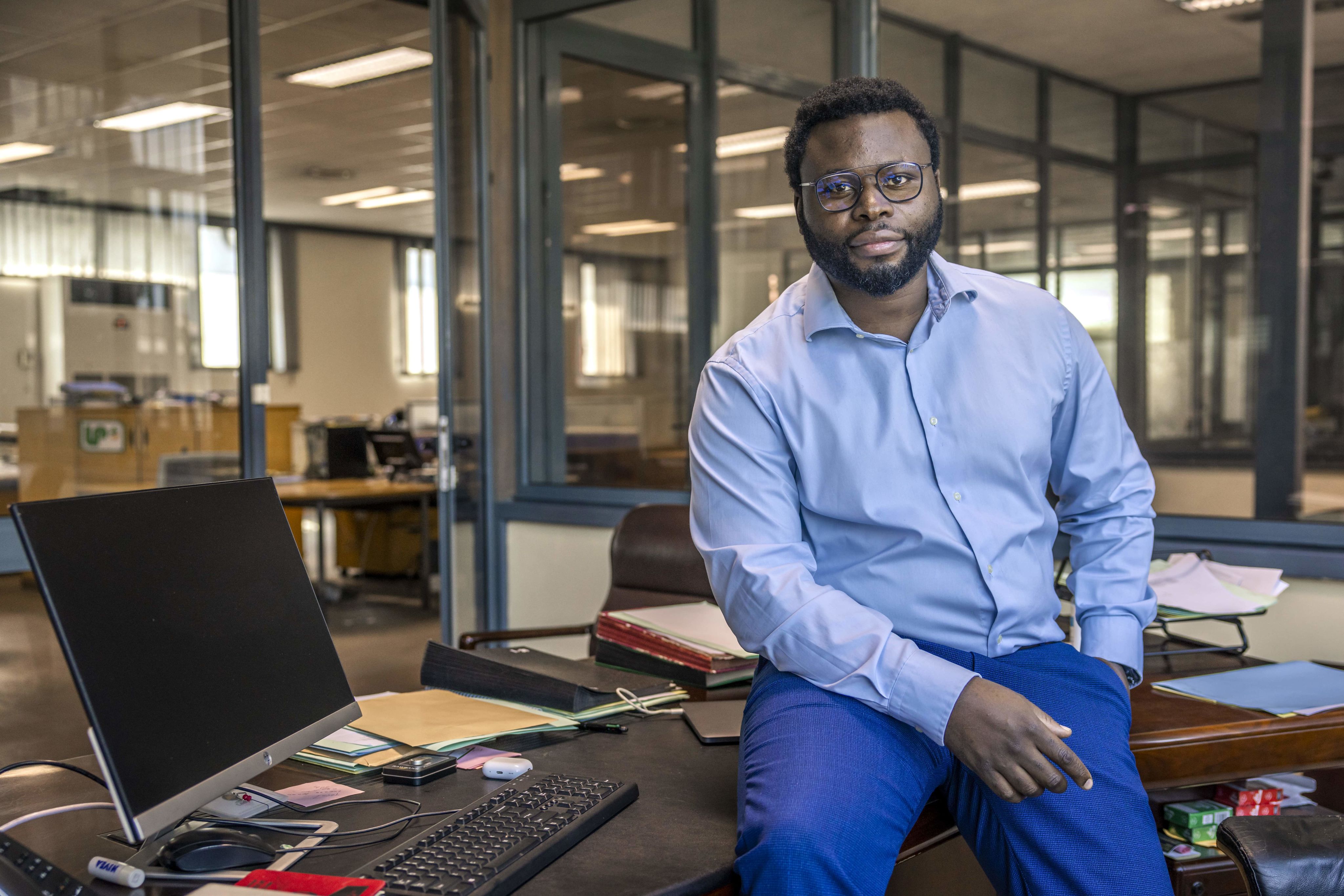
- Company: EH Solaire
- Sector: Solar energy
- Co-founder: Michael Lengo, 34
- Banking support: EquityBCDC
After signing his first contract to build a 1-megawatt solar power plant in Lufu, in the southwest of the DRC, Michael Lengo faced the challenging task of securing financing for the project.
“I went to almost every bank in Kinshasa to try and raise funds, but it wasn’t easy,” says the 34-year-old co-founder of EH Solaire, a Congolese start-up specializing in the installation of photovoltaic power systems.
After securing a family loan and a personal guarantee to strengthen their application, Lengo and his business partner Raymond Nzeyimana eventually secured funding from EquityBCDC. The bank granted two loans totaling $1.1 million (almost fully repaid today) to finance the Lufu project, which has the capacity to power 200 households located near the DRC’s border with Angola.
The bank's support was essential in helping EH Solaire get off the ground, Lengo says.
“This is the key to starting the engine,” he says. “There are a lot of opportunities in the DRC, and you can have a great idea, but without financing, it will never be realized.”
In early 2023, his company was awarded a second contract from the country’s national electrification agency to build three solar plants in central DRC, with a total capacity of 900 kilowatts. For this project, Equity BCDC is providing EH Solaire with an advance payment guarantee of $400,000.
Thanks to these early successes, EH Solaire can start to think big: the company is currently in talks for a 50-megawatt project in the north of the country and aims to expand across the DRC – and beyond.
With only 21 percent of the Congolese population accessing the grid in 2021, solar energy presents a major opportunity to increase power production and distribution in the DRC through a green, renewable power source.
“Our goal is to install solar panels in every province of the country,” Lengo says. “As Congolese, it is our duty to ensure the population has at least the basic necessities. In the DRC, the sun shines all year round, but it is mostly wasted, unused energy. We have to do something about it.”
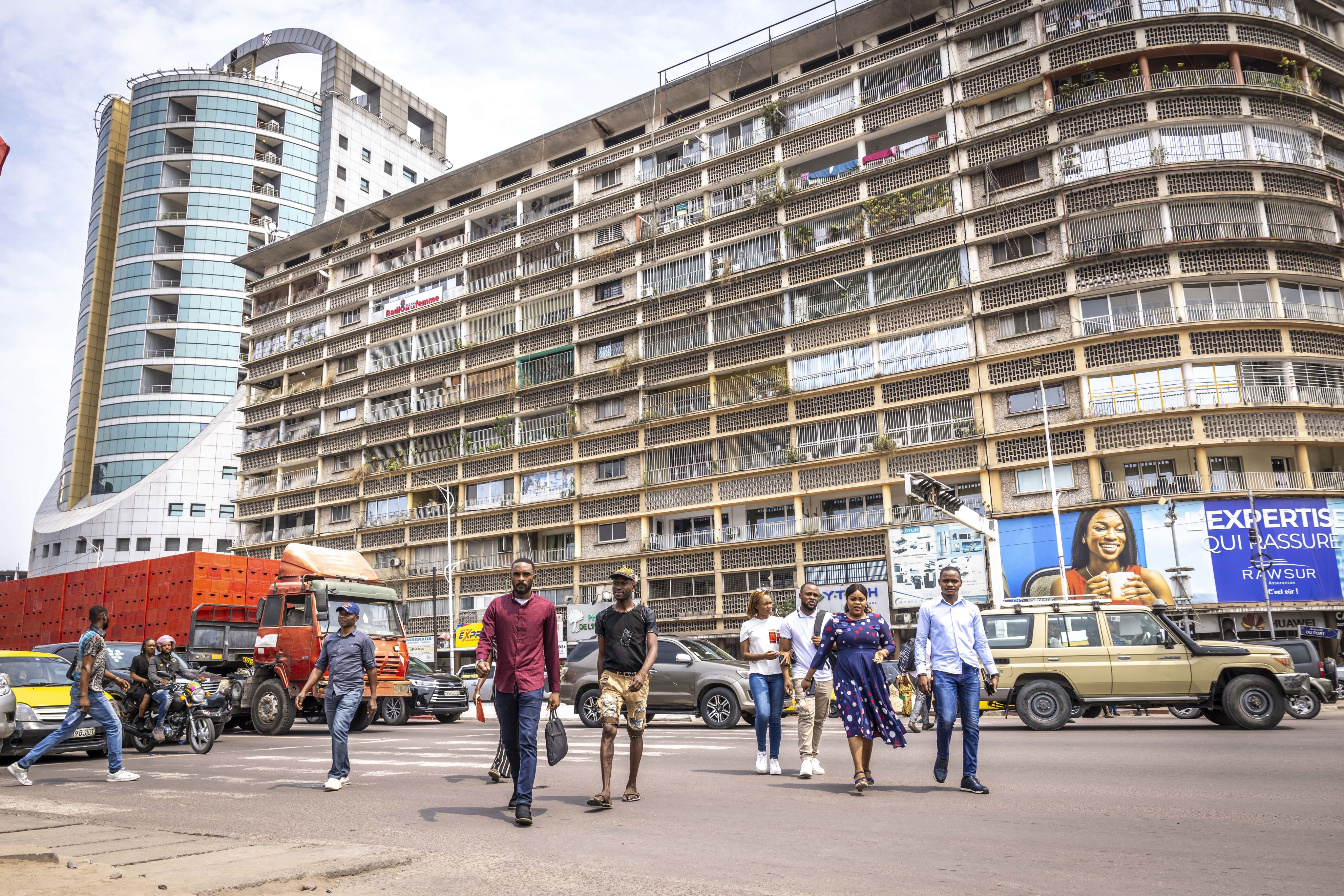
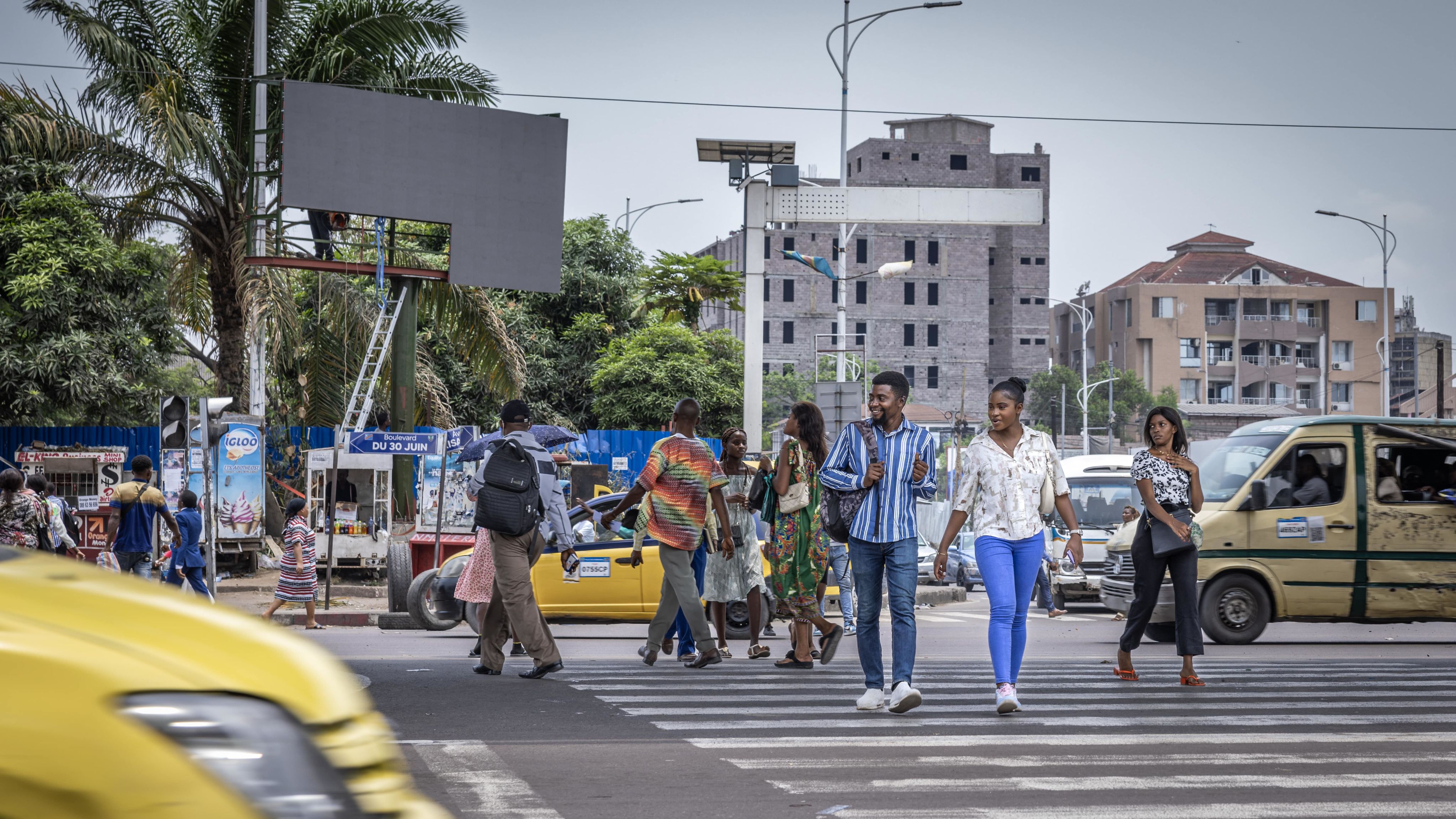
Equipping the Healthcare System
“Getting bank guarantees in a timely manner is critical.”
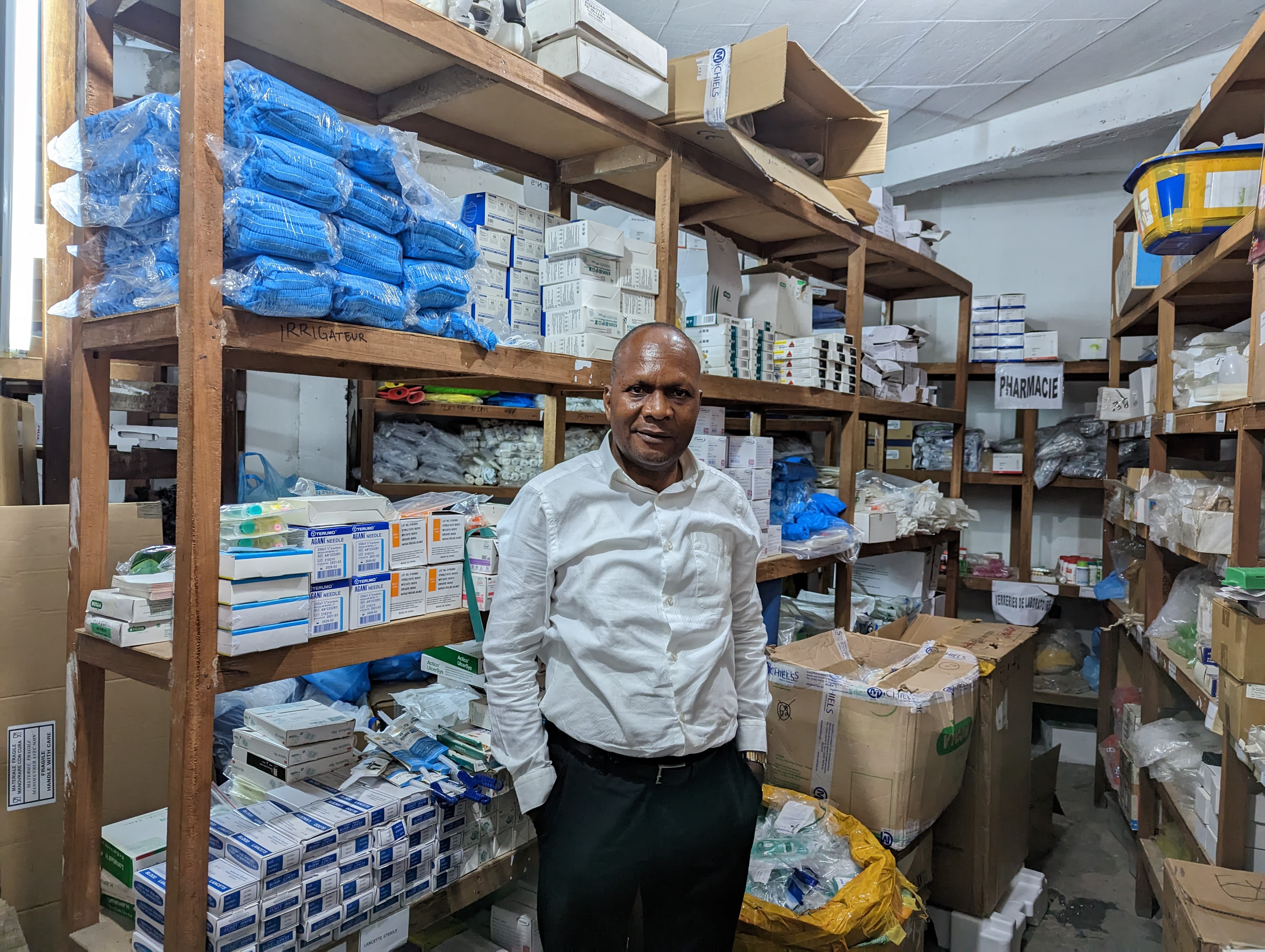
- Company: Ma Santé
- Sector: Health
- Founder: Gabriel Yala Manzefo, 60
- Banking support: Rawbank
After studying marketing in France, Gabriel Yala Manzefo returned to Kinshasa in 1994 to start his own business. The budding entrepreneur noticed that clinics and health centers in the DRC lacked important medical equipment, including radiology devices, delivery tables, and even basic medical beds.
To fill the gap, Manzefo created Ma Santé (‘My Health’ in English). He quickly built a strong network of partners in Europe, growing his firm into a leading distributor of medical equipment in the DRC, with clients including NGOs, private clinics, and public hospitals.
To support its activities in the healthcare sector and generate additional sources of revenue, Ma Santé, which now employs 25 people, has recently diversified into real estate. With financial support from Rawbank, the company has built two hotels in Kinshasa to accommodate medical conferences, training for healthcare professionals, and visiting partners, and is currently developing a hotel/apartment project.
Since its first engagement with Rawbank in 2016, the company has secured $2.5 million in loans as well as $2.5 million in guarantees, helping it reach an annual revenue of $20 million.
"Starting and building my own company has been a roller coaster ride," Manzefo says. "To achieve this, you have to stay focused and keep up with your business very closely.”
Manzefo underlined the importance of being proactive and agile to respond quickly to tenders. “Getting bank guarantees in a timely manner is absolutely critical, so you have to be fully prepared," he says.
Despite the challenges, Manzefo’s ambition is tireless. His next goal? To build a factory in Kinshasa to produce medical equipment locally. "It doesn't make sense for us to import everything," he says. "Our country should be able to produce all these things here.”
Delivering Goods in Remote Areas
“The bank’s support helped us aim higher.”
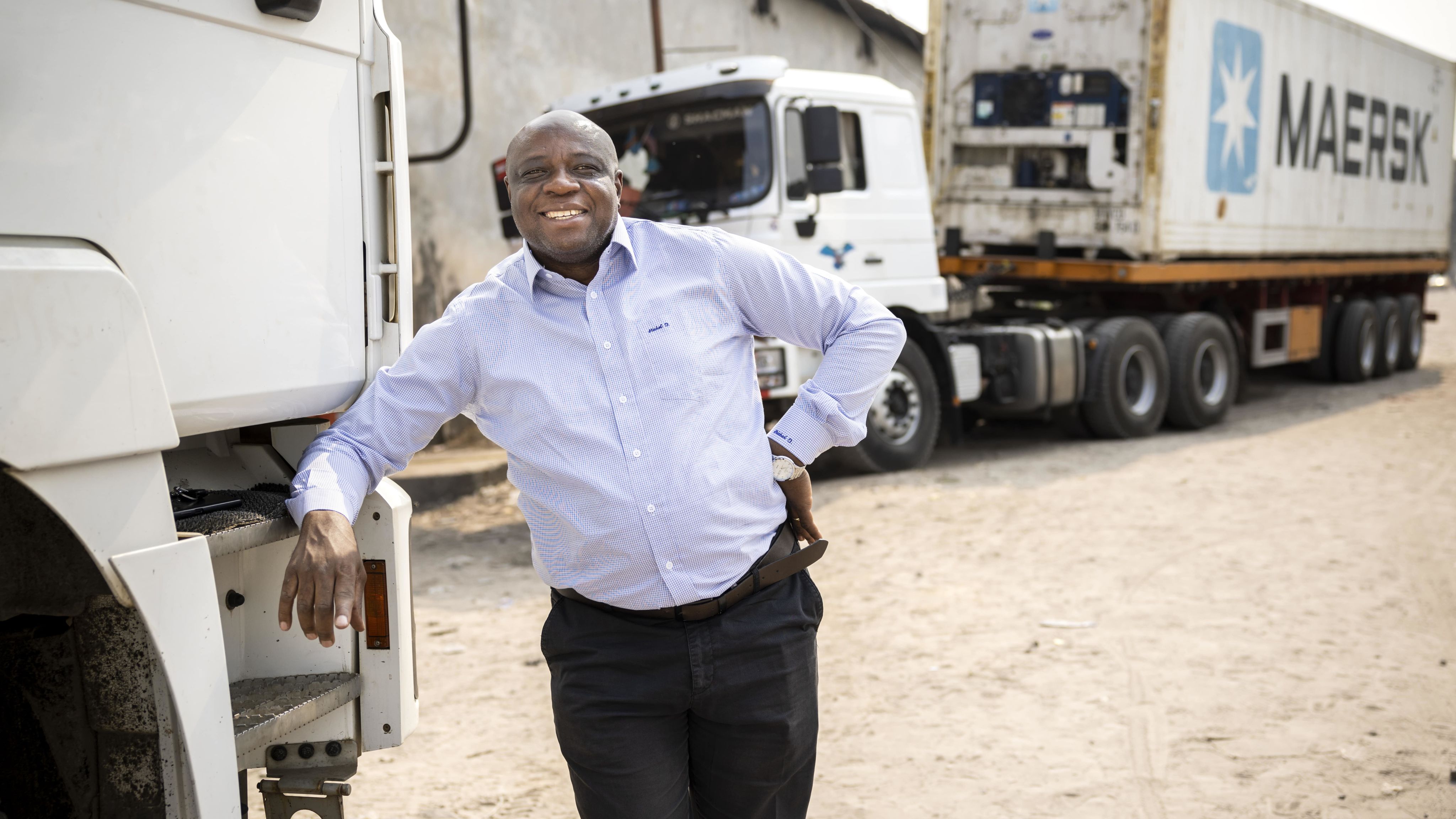
- Company: TLC
- Sector: Transport & Logistics
- Founder: Michel Mutombo, 49
- Banking support: EquityBCDC
"It's like a love story.”
That is how Michel Mutombo, founder and CEO of TLC SARL, a transport and logistics company, describes his relationship with his bank, EquityBCDC.
"It started with small, short-term loans and turned into essential support for the company's development and growth," says Mutombo.
It all began in 2006. Having founded Sodimat a year earlier, which became TLC in 2009, Mutombo took out a $5,000 loan with ProCredit Bank DRCongo – one of two former entities behind the creation of EquityBCDC in 2015 – to purchase a second-hand delivery truck.
Since then, TLC has secured over $5 million in financing from the bank in the form of larger loans, credit facilities and cash advances, helping the company strengthen its working capital, acquire warehouses and vehicles, and bring its operations up to international standards.
“The bank’s support was absolutely crucial," says Mutombo. “It gave us a taste for challenge and enabled us to aim higher.”
Since its creation, TLC has grown from five to 96 employees and expanded throughout the country and into neighboring Zambia, working with various private sector companies, NGOs, and international organizations. The company now boasts an annual revenue of $7 million.
These achievements are a source of pride for Mutombo, an economist by training. He sees his company, which offers multimodal transport services and customs support, as a problem solver in the DRC’s complex communications and logistics context.
"The DRC is a vast country, but our roads are in a terrible condition. Our economy also deeply relies on imports, and this requires efficient customs management,” he says. “We are helping to solve our transport problems by adapting our communication routes and logistics to get products to the most remote part of the country. And that’s huge work.”
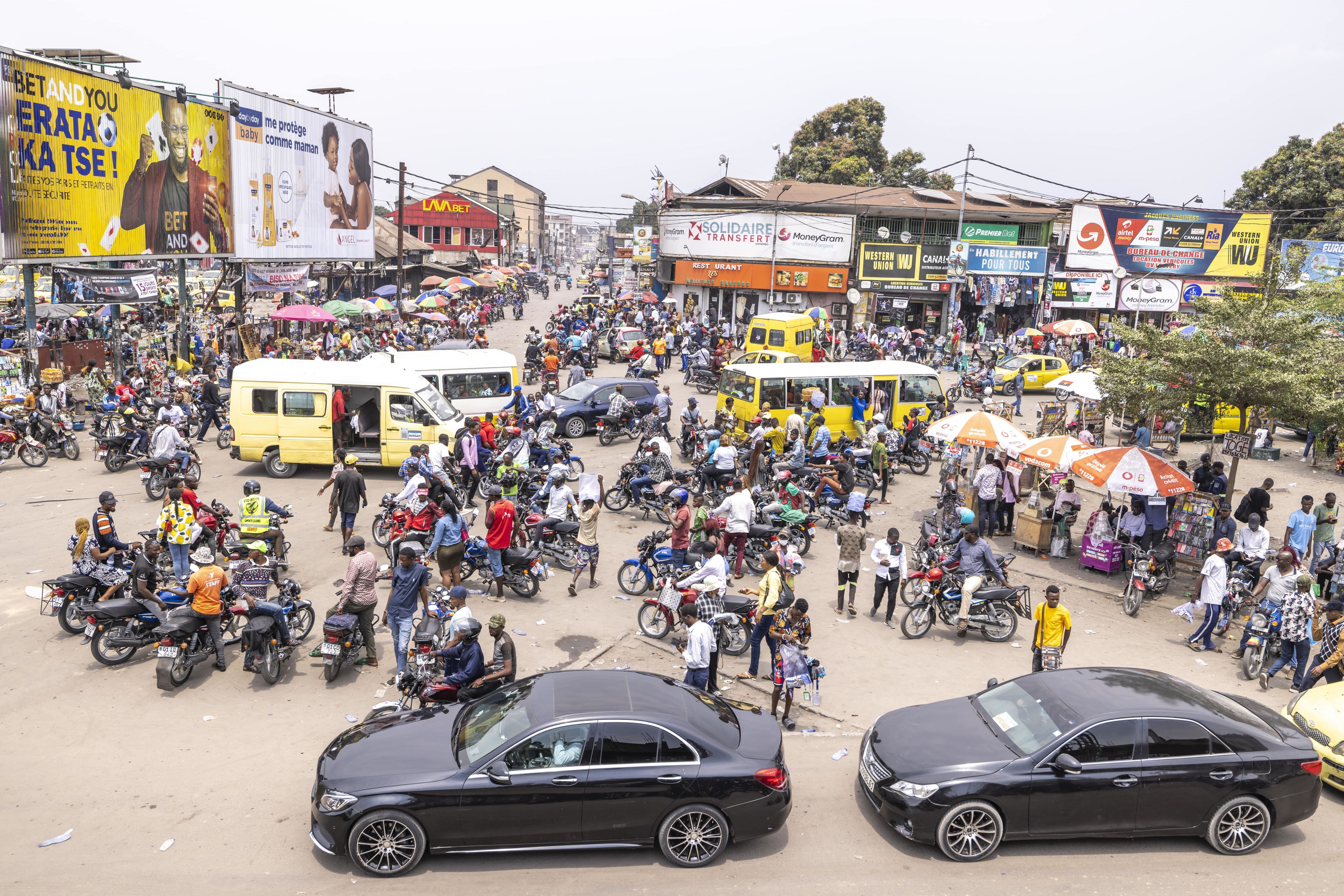
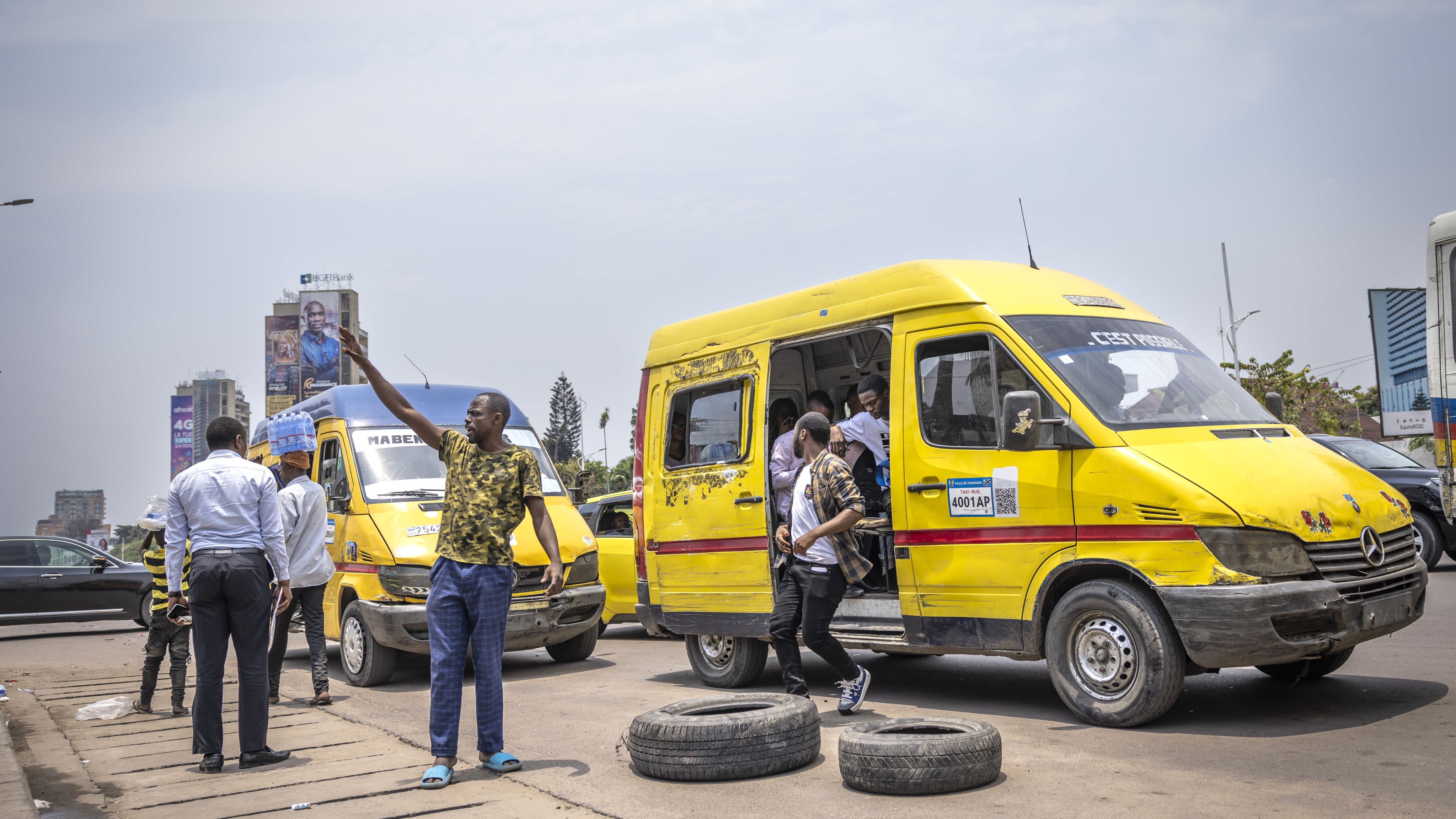
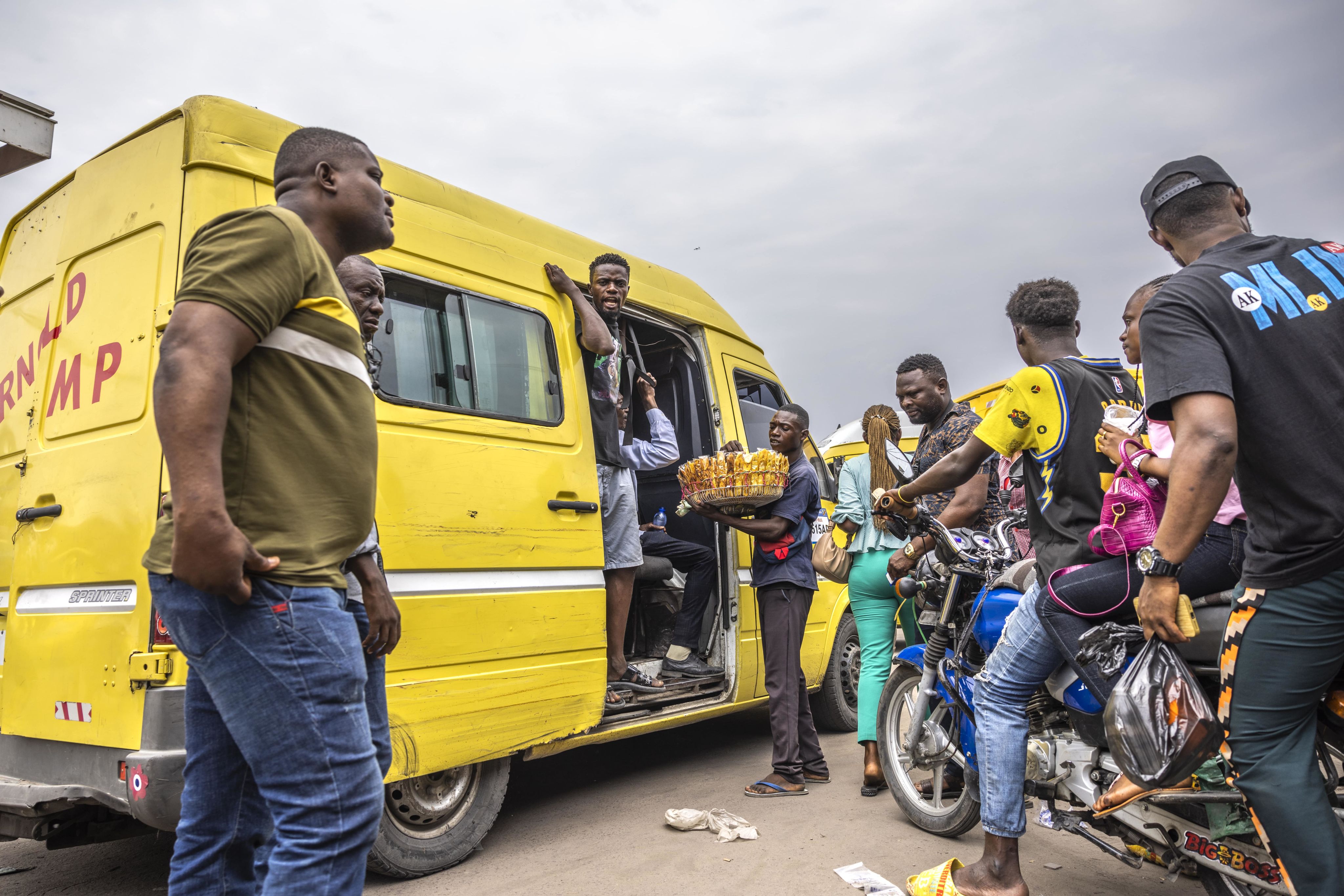
Published in November 2023